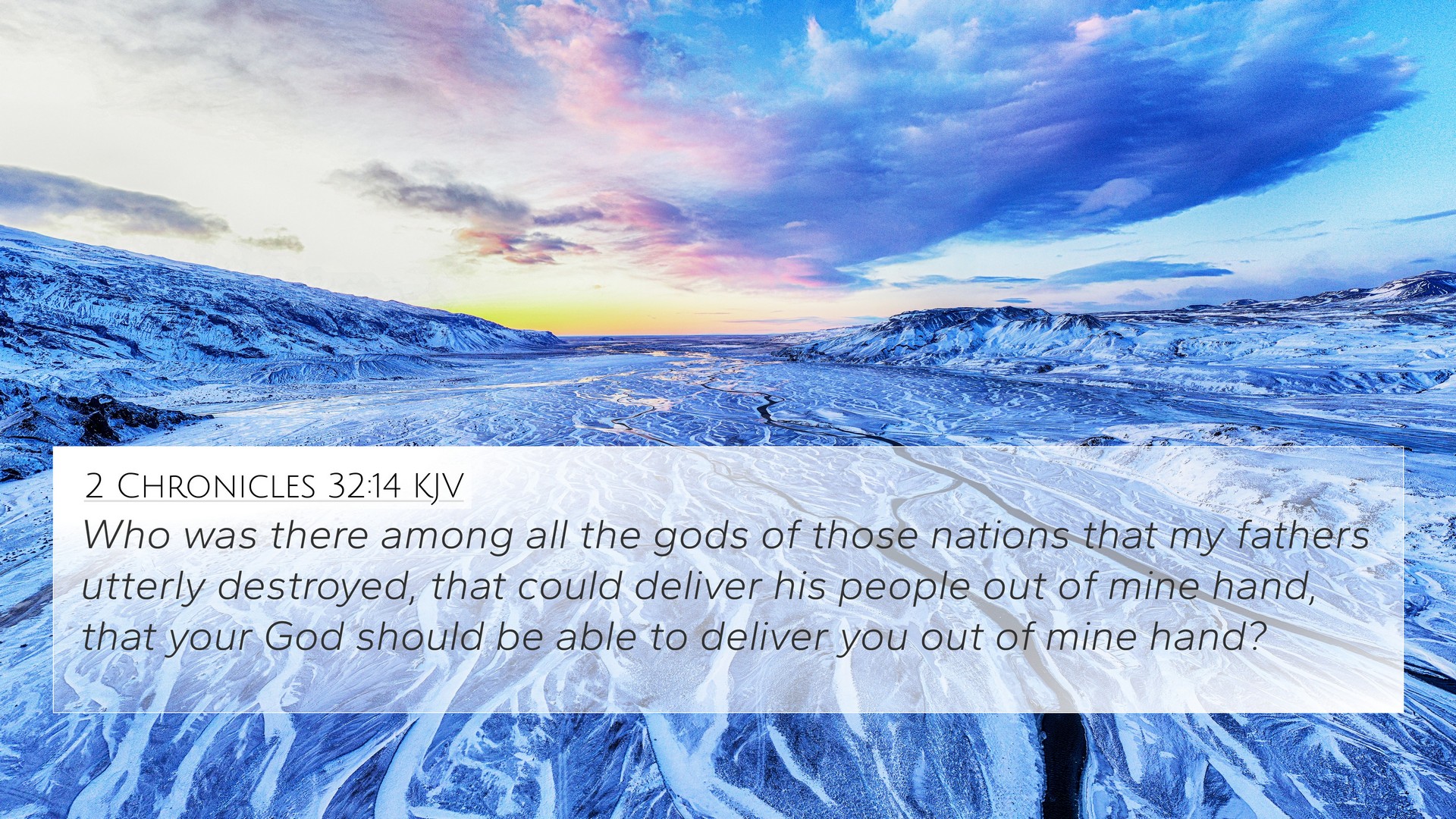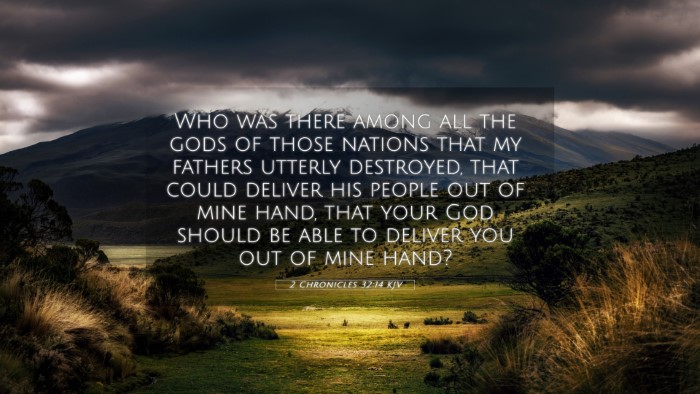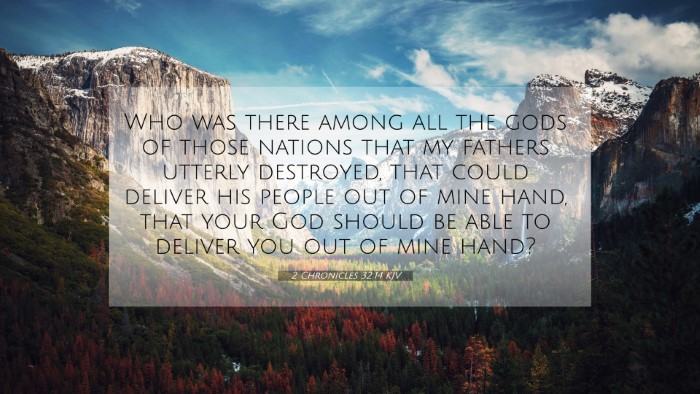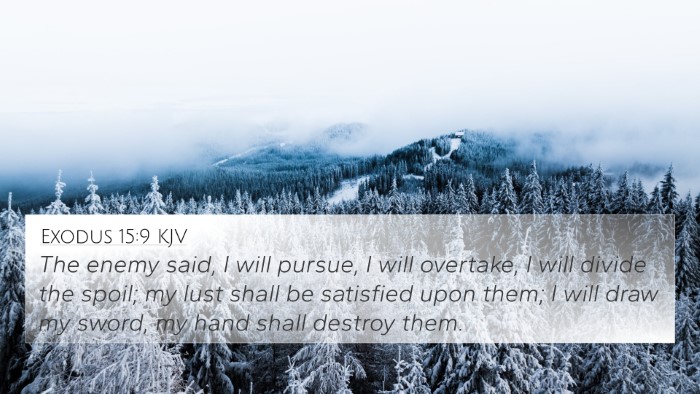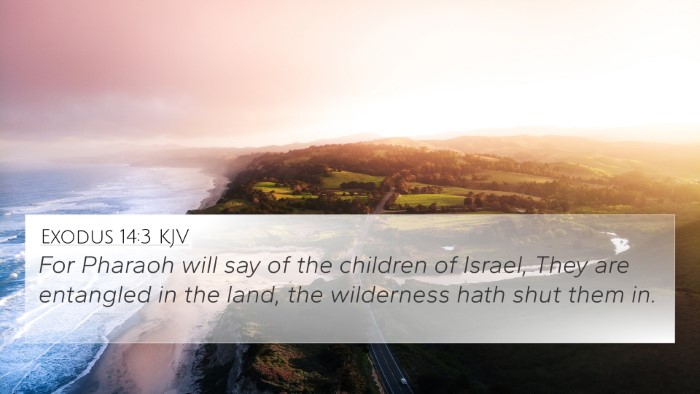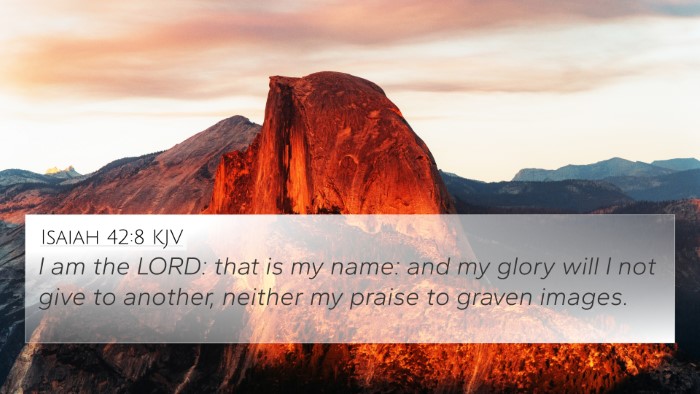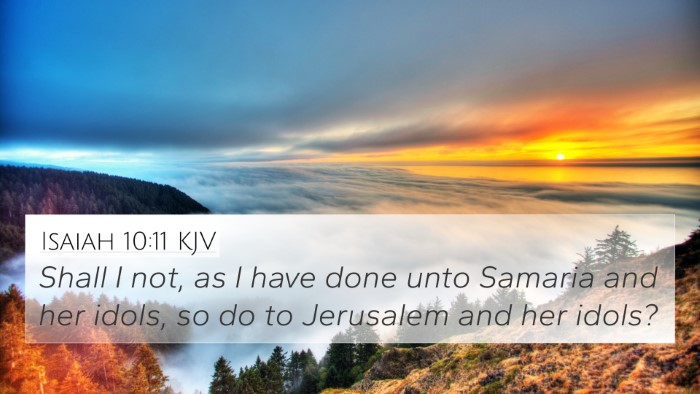Understanding 2 Chronicles 32:14
Verse: 2 Chronicles 32:14 - "Who was there among all the gods of those nations that my fathers utterly destroyed, that could deliver his people out of mine hand, that your God should be able to deliver you out of mine hand?"
This verse speaks volumes about the power of God in comparison to the false gods worshiped by neighboring nations. King Hezekiah faces ridicule and threats from Sennacherib, the king of Assyria, who challenges the sovereignty of Yahweh.
Interpretation and Meaning
The commentary insights from various public domain sources can be summarized as follows:
- Matthew Henry: He emphasizes the sheer audacity of Sennacherib in comparing Yahweh to the powerless idols of the pagan nations. Henry explains that Sennacherib's question targets the perceived weakness of Israel's God, assuming that He would be unable to protect His people from the might of Assyria.
- Albert Barnes: Barnes elaborates on the context of this statement, describing how the Assyrian king attempts to instill fear in the people of Judah. He argues that by addressing their gods, he aims to demoralize the Israelites and turn them against Hezekiah, pushing the narrative that their God could not deliver them as others had failed.
- Adam Clarke: Clarke notes the historical significance, suggesting that Sennacherib's comments reflect a misunderstanding of God's nature. He highlights that the false gods were powerless before the Almighty, and the verse serves as a reminder of the unique sovereignty of God over all creation.
Connections to Other Bible Verses
This verse parallels with multiple other scriptures, illustrating the key theme of God's deliverance:
- Isaiah 37:10-13: Sennacherib's challenge echoes as Isaiah prophesies defeat against the Assyrians.
- 2 Kings 18:30-32: A similar message is delivered where the Assyrian king taunts God’s ability to save His people.
- Psalm 115:3-8: This psalm contrasts the living God with the idols of the nations, emphasizing their impotence.
- Jeremiah 10:5: Focuses on the inability of idols to act or save, showcasing the supremacy of the true God.
- Romans 1:25: A New Testament perspective on exchanging the truth of God for a lie connects with the idol worship of Sennacherib’s time.
- Revelation 19:1-2: Highlights the eventual judgment of all nations and their false gods, reinforcing God's ultimate authority.
- Psalm 146:3-6: A reminder not to put trust in princes or human rulers, but in God, who made heaven and earth.
Thematic Connections
The themes encapsulated in 2 Chronicles 32:14 are significant:
- Power of God: This verse is a direct assertion of God's omnipotence and His role as protector of His people.
- False Idols: The futility of worshiping idols is a recurring theme in the Bible, as illustrated through this taunt from Sennacherib.
- Faith and Trust: Hezekiah's leadership and faith highlight the importance of trusting God amidst adversity.
- Divine Deliverance: God's past actions demonstrate His ability to deliver His people, a central theme throughout Scripture.
Cross-Referencing Biblical Texts
Understanding 2 Chronicles 32:14 can be enriched through various techniques of cross-referencing:
- Bible Concordance: A helpful tool for locating similar verses that discuss God’s sovereignty and idolatry.
- Cross-reference Bible Study: Engaging with multiple passages provides a broader understanding of common themes.
- Inter-Biblical Dialogue: Examining connections between the Old and New Testament enhances comprehension.
- Thematic Bible Verse Connections: Grouping verses by themes helps highlight the consistencies in God’s word.
How to Use Bible Cross-References
Utilizing cross-references aids in deeper Bible study. Here’s how:
- Identify key terms in the verse and use a concordance to find related verses.
- Group related scriptures to build a comprehensive view of the theme.
- Look for linking verses that provide context or contrast to facilitate understanding.
- Engage in comparative Bible verse analysis to find parallels and insights.
Conclusion
In conclusion, 2 Chronicles 32:14 serves as a potent reminder of God's sovereign power in contrast to the idols and false gods of this world. By exploring other scriptures, we can grasp the profound assurance found in trusting the Lord for deliverance. This verse provides a rich field for comparative study and thematic connections, revealing deeper insights that remain relevant today.
